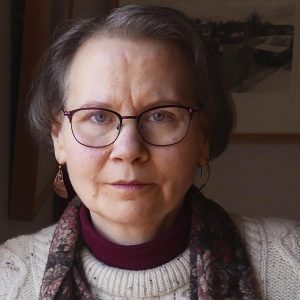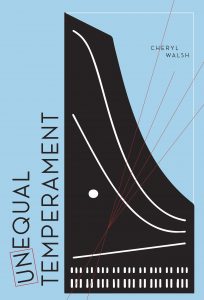Of Sweet Spots and Near Misses
Of Sweet Spots and Near Misses
 From the time I started reading chapter books in elementary school, I have loved stories that go on for days. I knew I wanted to write them. The trouble was, I couldn’t think of any stories that were long enough to fill a book.
From the time I started reading chapter books in elementary school, I have loved stories that go on for days. I knew I wanted to write them. The trouble was, I couldn’t think of any stories that were long enough to fill a book.
I could think of intriguing characters. I could make up conversations. I even came up with great first lines (not that I remember any of them). When it came to narrative, though, I always came up empty.
Eventually, I decided to write history books—history has narratives aplenty. So picture me, a historian-in-training nearing the age of 30, in the middle of writing my first book, a master’s thesis on Christian socialism. Suddenly, I find myself thinking, “This would be a much better story if these two people met and had it out. Or if this bishop had an epiphany after hearing that priest preach. What if this politician actually found God instead of just pretending he had?” All sorts of stories sprang up in my mind, tempting me to flesh them out with fictions.
Several years later, after I had abandoned history and earned an MFA in fiction writing, I had written a very long story, nearly 130,000 words. Full of religion and politics, it was about a strong but irascible woman who was trying very hard to do the right thing in a community she didn’t understand. When I queried agents, I had many full requests and complimentary responses, but no offers of representation. The comments ran along the lines of, it’s really good, but it doesn’t hit the sweet spot. It’s too long for a first novel and it risks offending too many people.
I started querying publishers that accepted unagented submissions. There were several full requests and two near misses: A major publisher was very complimentary and regretted having to pass, and a small but well established press expressed strong interest in it, but after many months it decided it just couldn’t fit it into its list.
In the meantime, I set about writing what everyone said would be a better debut: much shorter, no politics or religion. And a bit more sex. I wrote about a woman whose carefully balanced life as a meteorologist and musician was thrown askew by her father’s death. Set in the Midwest, it had the excitement of active weather as well as the pangs of cultural striving.
This second novel—the better debut—came in at just under 60,000 words. Short of the sweet spot this time, but it was a lean mean meaning machine, and I loved it. So did a big-time literary agent in New York. When she offered me representation, I jumped around the room with glee. At last, after eight years of rejection and two novels, I was finally getting somewhere!
That was seventeen years ago. Shortly after taking me on, the agent closed her agency. In the ensuing scramble to find another, I got several full requests but no takers.
I submitted the book to contests and small presses, and again, I had two near misses, two complimentary rejections that said the book didn’t quite hit the sweet spot. The executive editor of one of the larger independent publishers said the narrative arc was not as developed as he had hoped, and the senior editor of a well regarded university press felt the tone was too high for such a short work.
So I got to work on my next project, a multigenerational family saga set on a cattle ranch in Colorado. Over the past fifteen years or so, that story has yielded two long novels that do indeed take days to read. But I continued to send out my first two novels, the one that was too long and the one that was too short.
 As American politics became more polarized, I hoped that my first novel—featuring a progressive outsider trying to find common ground with her conservative neighbors—might find some traction. And I hoped that the second, which tried to avoid politics altogether, might have a fighting chance at publication.
As American politics became more polarized, I hoped that my first novel—featuring a progressive outsider trying to find common ground with her conservative neighbors—might find some traction. And I hoped that the second, which tried to avoid politics altogether, might have a fighting chance at publication.
Over the years, I’ve revised them both. I kept the first one set in the mid-1990s, because the political and religious perspective of the narrator was so clearly shaped by growing up in the 1960s and ’70s. I also thought the more confrontational aspects of the novel might become more palatable if they were set in the past. Because the second novel’s dynamics were intentionally independent of its social and political context, I updated it twice to keep it present-day.
Then in 2021, I saw an announcement for the Buffalo Books Fiction Prize. Submissions had to be between 50,000 and 80,000 words, and it had to be set in the Midwest or flyover regions of the West. I sensed a sweet spot for that second novel, and this time I hit the bullseye.
Unequal Temperament will be published late this summer by American Buffalo Books. The book I wrote as a better debut will in fact be my debut, twenty years after I wrote it.
While the disappointment of a near miss stings, there’s a bracing encouragement that comes along with it, too. My near misses gave me the confidence to keep my writing a priority when I had little else to show for it. And they still give me hope for my first novel (and the third, and the fourth) over the long, long haul.
—
Cheryl Walsh is the author of the novel Unequal Temperament, which won the inaugural Buffalo Books Fiction Prize and is forthcoming on September 5 from American Buffalo Books. She earned a master’s degree in history at Cornell University before giving in to the tug of fabrication and taking her MFA in creative writing at Virginia Commonwealth University. Her creative work has appeared in the online journals Embark and Burningword, the audio magazine The Drum, and several print magazines and anthologies. Originally from Michigan, she now lives and writes in a 110-year-old house in Iowa City, which she shares with her husband, the Australian photographer Bruce Hart.
Twitter @IrishRoad
Instagram @cherylwalshbooks
Category: Contemporary Women Writers, How To and Tips






























